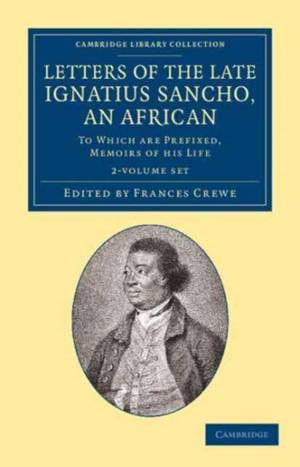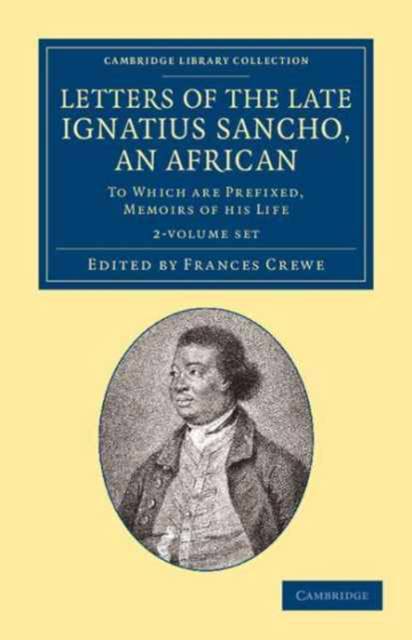
Door een staking bij bpost kan je online bestelling op dit moment iets langer onderweg zijn dan voorzien. Dringend iets nodig? Onze winkels ontvangen jou met open armen!
- Afhalen na 1 uur in een winkel met voorraad
- Gratis thuislevering in België vanaf € 30
- Ruim aanbod met 7 miljoen producten
Door een staking bij bpost kan je online bestelling op dit moment iets langer onderweg zijn dan voorzien. Dringend iets nodig? Onze winkels ontvangen jou met open armen!
- Afhalen na 1 uur in een winkel met voorraad
- Gratis thuislevering in België vanaf € 30
- Ruim aanbod met 7 miljoen producten
Zoeken
Letters of the Late Ignatius Sancho, an African 2 Volume Set
To Which Are Prefixed, Memoirs of His Life
Ignatius Sancho
€ 60,45
+ 120 punten
Omschrijving
Born a slave, Ignatius Sancho (c.1729-80) became one of the most influential free Africans of his century. Largely self-taught, he was the first black Briton known to have voted in parliamentary elections and to be given an obituary in the British press. He corresponded with many notable figures, including the author Laurence Sterne, whom he urged to write against slavery in the West Indies. The politician Joseph Jekyll (1754-1837) commended Sancho's 'epistolary talent' in a brief biography, praising his 'wild patriotism' and 'universal philanthropy'. This two-volume collection of Sancho's letters was published in 1782 by the hostess Frances Crewe (1748-1818), who upheld Sancho as proof, in an age of dehumanising slavery, that Africans possessed as much natural intelligence as Europeans. Volume 1 contains Jekyll's biography, a list of more than 1,200 subscribers, and letters for the period 1768-78. Volume 2 contains letters spanning 1778-80.
Specificaties
Betrokkenen
- Auteur(s):
- Uitgeverij:
Inhoud
- Aantal bladzijden:
- 506
- Taal:
- Engels
- Reeks:
Eigenschappen
- Productcode (EAN):
- 9781108065320
- Verschijningsdatum:
- 5/09/2013
- Uitvoering:
- Boek
- Afmetingen:
- 137 mm x 211 mm
- Gewicht:
- 616 g

Alleen bij Standaard Boekhandel
+ 120 punten op je klantenkaart van Standaard Boekhandel
Beoordelingen
We publiceren alleen reviews die voldoen aan de voorwaarden voor reviews. Bekijk onze voorwaarden voor reviews.











